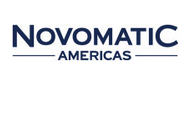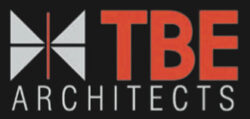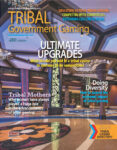
Tribal casinos have tough decisions staring them in the face as a result of the soft national economy and increased competition.
What’s going on? Here are some highlights.
Earlier this year, it was reported that home values hit a 10-year low. That was the bad news. The really bad news was that many economists thought values would sink even further because of “shadow inventory” and a slow economic recovery. As if that wasn’t enough sunshine, gasoline prices hit record highs in February (for that time of year). Petroleum demands in China and India will likely keep gas prices inflated.
On the competitive side of the equation, states are desperately looking for ways to increase revenue without raising taxes. “Sin taxes” are a perfect fit. Who will complain about taxes on casinos and gentleman’s clubs? States that have said no to casinos for years are now considering them. Some states that have casinos are looking at expanding gaming. That means increased competition for existing casinos.
The gaming industry is quickly reaching saturation. Take Florida, for example. It started with several tribal casinos that drew customers from around the state and possibly some bordering states. Now, many of Florida’s horse and dog tracks have slots and poker.
That doesn’t even consider online gaming. As casino guests age, getting out of the house becomes more challenging, and the internet is only a click away. Obviously, the expansion of online gaming takes a bite out of brick-and-mortar casinos’ business.
Casino leaders need to make some tough decisions now to cope with current and future challenges. It won’t be fun or easy, but difficult choices are necessary for long-term success and survival.
Here are some things to think about and plan for.
With a weak economy and increased competition, what is your strategic plan for the next five to 10 years? When you review this plan, think about how it would look with a 10 percent or even a 25 percent decrease in revenue.
If a competitor enters your market and builds a beautiful new casino, what changes, renovations or new construction will you have to ponder to keep your casino competitive? In some markets, people are tossing around the term “billion-dollar casino” like it’s pocket change. If a billion-dollar casino opens within two hours of your property, how will you compete? A new casino like that is a huge draw and smaller, older casinos in the area usually end up getting hurt.
If a neighboring state passes a law to allow casinos, how will that affect you? New competition may not be right next door, but it could be in or near a major market that you currently draw from.
Earlier, I mentioned rising gas prices. How will that affect your customers who are currently driving a couple of hours each way to play at your casino? Will they stop coming? Will they come less often? Will they just have less money to play with?
There are psychological barriers that players grapple with. When they spent $20 to fill the tank, it was no big deal. But when the pump hits $75 or even $100, that can be a barrier that they are not comfortable crossing.
As you read this, you may be thinking it could take years for competitors to build billion-dollar casinos and for states to pass laws and enact them. That’s true. But how long will it take you to get your casino ready for what could happen?
When we do customer experience consulting and improvement with a casino, it often takes 12 months to fully implement changes and an additional 12 to 18 months to see noticeable improvement in play. This means that if you want a superior customer experience as your cornerstone for success, you need to start working on that goal now.
For example, it can take three to six months just to review or develop guest service standards, create baseline service reports and then examine goals and expectations for the improvement process—depending upon the approval process and the executive team’s ability to review materials and keep things moving. This is no different than when a casino launches new construction. The planning on the front end often takes more time than is expected, but it’s critical to the success of the project.
As I look at what is happening in the economy and the increase in competition, I see customer service and guest experience improvement as the keys for success. It’s almost impossible to out-build and out-develop the competition. When they add a world-class golf course, will you build two? When they add a water park, will you do the same?
That’s a race that can’t be won.
Stellar customer service and a superior gaming experience are the only real competitive advantages that casinos have. The casinos that will succeed in the future will spend time and money today making sure they have S.M.A.R.T. service standards that are measured by a third party on a regular basis. (S.M.A.R.T. as in Specific, Measurable, Attainable, Realistic and Time-bound.) They will have a process in place so they are always improving their service and customer experience.
Competitors prefer to go where they think it will be easy to succeed. Competing with world-class customer service is never easy.


















